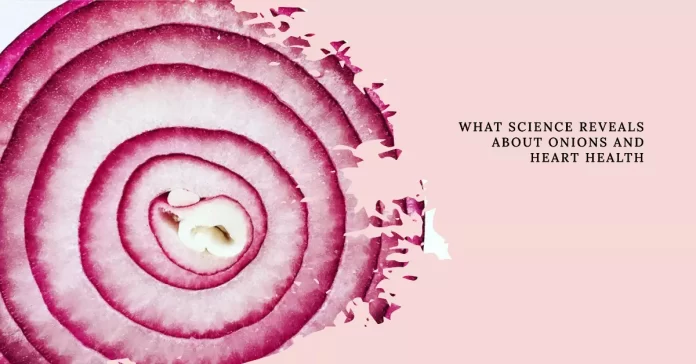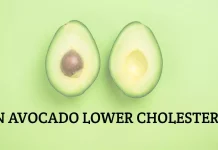Regarding heart health, we’re often well-acquainted with the guidance to maintain a balanced diet, engage in regular exercise, and minimize stress. Did you realize that a kitchen staple as unassuming as the onion might contribute to maintaining a healthy heart? Let’s dive into the science behind this intriguing connection.
The Nutritional Powerhouse
Before we explore how onions can benefit your heart, let’s take a moment to appreciate the nutritional profile of this common vegetable. Onions are rich in essential vitamins and minerals, including vitamin C, B6, folate, and potassium. They’re also a rich source of dietary fiber and various antioxidants.
Antioxidants and Heart Health
One of the main reasons onions are associated with heart health is their high antioxidant content. They help neutralize harmful free radicals in the body, thus reducing oxidative stress. Various chronic diseases, including heart disease, are linked to oxidative stress.
Onions contain a particularly potent antioxidant called quercetin. Research shows that quercetin possesses anti-inflammatory properties and the potential to lower blood pressure. High blood pressure is a significant risk factor for heart disease, so anything that can help keep it in check is worth considering.
Blood Pressure Regulation
Several studies have investigated the effects of onions on blood pressure. A study published in the journal “Hypertension” reported that including quercetin-containing foods like onions in your diet can significantly reduce systolic and diastolic blood pressure. Lowering blood pressure is crucial for reducing the risk of heart attacks and strokes.
Cholesterol Management
Another way onions may benefit heart health is by helping to manage cholesterol levels. Elevated LDL cholesterol levels, commonly known as “bad” cholesterol, significantly increase the risk of heart disease. Some studies suggest that onions may have a positive impact on cholesterol profiles.
An analysis in the “Journal of Nutrition” revealed that consistent onion consumption could lower total cholesterol levels. While we still require further research, It’s reassuring to consider that” it’s promising to review that the straightforward act of including onions in your meals might potentially improve your cholesterol levels.”
Blood Sugar Control
Maintaining stable blood sugar levels is also essential for heart health. Elevated blood sugar levels can harm blood vessels and raise the risk of cardiovascular issues. Despite their natural sweetness, onions have a low glycemic index, implying that they don’t cause rapid spikes in blood sugar levels. It makes them a good choice for individuals concerned about diabetes or those looking to manage their weight.
Incorporating Onions into Your Diet
Now that we’ve explored the science behind onions and heart health, you may be curious about how to incorporate more of this flavorful vegetable into your daily meals. Thankfully, there are numerous delightful ways to achieve this.
Try adding sliced raw onions to salads or sandwiches for a zesty crunch. Caramelized onions can be a sweet and savory topping for burgers or a flavorful addition to pasta dishes. You can also experiment with different onion varieties like red, white, or shallots to vary the flavors in your recipes.
Final Thoughts
Although onions alone may not provide a magical solution for heart health, scientific evidence suggests they can significantly contribute to a heart-healthy diet. Their antioxidant-rich nature, potential blood pressure-lowering effects, cholesterol management properties, and blood sugar control make them a versatile and nutritious choice.
Frequently Asked Questions (FAQs)
Can onions help with heart health, or is it just a myth?
Onions contain antioxidants such as quercetin, which researchers have linked to potential heart health benefits. Research suggests that these antioxidants may help reduce oxidative stress and lower blood pressure, which have associations with heart disease.
How can I include more onions to enhance my heart health?
You can easily include onions in your diet by adding them to salads, sandwiches, and toppings for various dishes. Sauteed, caramelized, or roasted onions are delicious additions to many recipes, such as stir-fries, omelets, and pasta dishes.
Do certain onion varieties offer better heart health benefits than others?
While all onion varieties contain beneficial antioxidants, red onions are often considered specifically high in quercetin. However, incorporating a variety of onion types into your diet can provide a range of flavors and potential health benefits.
Can I still enjoy onions if I have high blood pressure or diabetes?
Onions can be part of a heart-healthy diet for individuals with high blood pressure or diabetes. Their potential blood pressure-lowering and blood sugar-regulating properties make them a versatile and nutritious choice.
What’s the ideal portion size of onions for heart health?
There’s no specific portion size, but including onions in your daily meals can be beneficial. Start with slight to moderate amounts and adjust based on your preferences and dietary needs.
Are there any potential side effects or allergies associated with onions?
Some people may experience digestive discomfort or allergies when consuming onions. If you have known allergies or sensitivities, it’s advisable to consult with a healthcare professional before incorporating onions into your diet.
Can cooking methods affect the heart-healthy properties of onions?
You can maintain the heart-healthy properties of onions by using various cooking methods, such as sautéing, roasting, and caramelizing. While cooking can alter the texture and flavor, it doesn’t necessarily diminish the potential benefits.
Is there any research on the long-term effects of including onions in one’s diet for heart health?
Research on the long-term effects of onion consumption on heart health is ongoing. Although some studies indicate positive results, it’s crucial to consider onions as a component of an overall heart-healthy lifestyle that encompasses a balanced diet and regular exercise for lasting benefits.
- 10 Ways Garlic Acts as a Potent Natural Antibiotic
- 10 Super Vegetables to Boost Your Heart Health
- 10 Incredible Uses of Oregano in Traditional Medicine
- The Healing Power of Chilli Pepper for Stroke Recovery
Research Study
Chinese researchers have uncovered the heart-healthy properties of red onions by conducting experiments with hamsters fed a diet enriched with red onion powder. The study found that the onion-supplemented diets led to a notable reduction in “bad cholesterol” (LDL) while maintaining high levels of “good cholesterol” (HDL) in the hamsters, particularly in the group receiving a 5% onion powder supplement, which experienced a significant 20.3% drop in cholesterol levels after eight weeks. This groundbreaking research suggests that the regular consumption of red onions could potentially lower the risk of coronary heart disease, making them a flavorful and nutritious addition to a heart-healthy diet.










